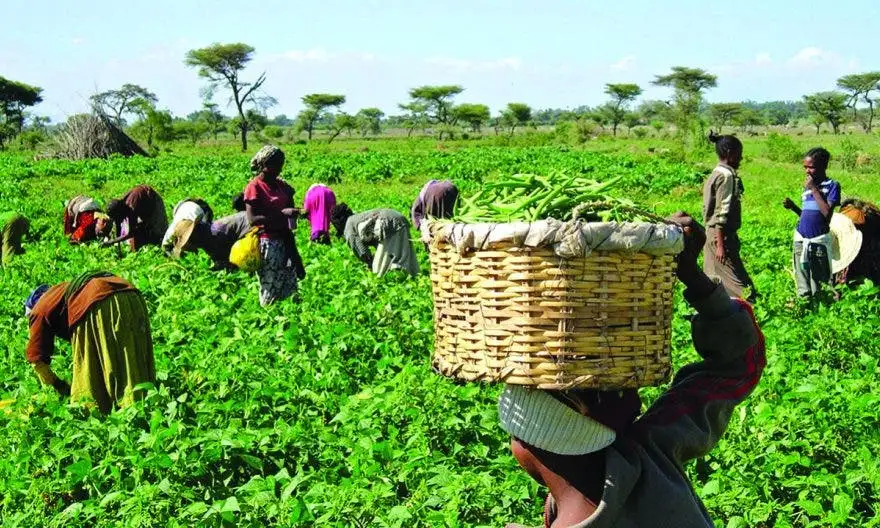George Twum-Barimah-Adu, an independent Presidential aspirant for the 2024 General Elections, has criticized successive governments for crafting agricultural policies that cater solely to the interests of a privileged few.
He indicated that these policies neglect the welfare of countless Ghanaian farmers who labor tirelessly to produce food for the nation.
During his address to a diverse group of farmers at the inaugural celebration of the Peasant Farmers Association of Ghana in Navrongo, Upper East region, George Twum-Barimah-Adu, a farmer himself, passionately asserted that successive governments, especially since the Fourth Republic, have consistently let farmers down.
The policies, he argued, primarily advantage the policymakers, while neglecting the very people who till the land and feed the nation.
Furthermore, he noted that his ‘Agric for Wealth’ policy would focus on making Ghanaian farmers prosperous and wealthy to be able to take care of themselves and their families.
He stressed that the policy will provide the children of farmers with access to quality education and a sustainable livelihood, empowering them to break the cycle of poverty and build a brighter future.
“Just like what my grandfather, who was a cocoa farmer, was able to do by giving his children the best of education”. – George Twum-Barimah-Adu
Furthermore, he highlighted that the ‘Agric for Wealth’ policy has the potential to be a groundbreaking game-changer for Ghanaian farmers, offering a transformative pathway to prosperity and economic growth.
“By harnessing the forces of innovation, investment, and empowerment, we can unleash the full potential of Ghana’s agricultural sector, driving sustainable economic growth, reducing poverty, and building resilient communities”.
George Twum-Barimah-Adu
In his view, the moment has arrived to capitalize on the opportunity and embark on a revolutionary path toward a future where agriculture becomes the bedrock of prosperity, driving inclusive growth and development for all Ghanaians.
He stressed that by working together, Ghanaians can sow the seeds of a brighter future, nurtured by the rich soil of their agricultural heritage, and harvest a tomorrow that is more prosperous and sustainable for all.
Agriculture Backbone Of Ghana’s Economy
Moreover, George Twum-Barimah-Adu noted that Ghana’s agricultural sector is the backbone of the country’s economy, employing majority of the population.

However, the sector faces numerous challenges, including low productivity, limited market access, and dependence on rain-fed agriculture.
According to him, to transform the sector and drive sustainable development, Ghana must adopt a multi-faceted approach that addresses these challenges and harnesses the potential of its smallholder farmers.
As such, the government must invest in mechanization and irrigation to improve agricultural productivity.
This can be achieved through public-private partnerships, financing schemes, and training programs for farmers.
Mechanization and irrigation will enable farmers to cultivate more land, increase crop yields, and reduce post-harvest losses.
Furthermore, the government must improve seed quality and access to fertilizers and pesticides through research and development, and extension services.
As such, high-quality seeds and inputs will enable farmers to produce high-yielding crops, improve their income, and reduce dependence on imported inputs.
More so, the government must enhance market access and prices for farmers through market research, product development, and branding.
By identifying profitable markets and developing products that meet consumer demands, farmers can increase their income and reduce poverty.
Moreover, Ghana must provide financing options for farmers to invest in their farms through agricultural financing schemes, credit facilities, and savings programs.
As such, farmers can invest in their farms, improve productivity, and increase their income as they are provided with financing options.
Furthermore, the government must promote climate-resilient agricultural practices to adapt to climate change extension services and farmer training.
By promoting climate-resilient practices, farmers can reduce their vulnerability to climate change, improve their productivity, ensure food security, and contribute to sustainable development, economic growth, and a prosperous future for Ghanaians.
READ ALSO: Vim Lady Defends MzGee Over ‘Sleeping With Bosses’ Claims























